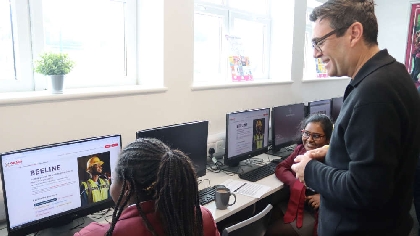
Andy Burnham has rolled out a crucial part of his plan to change education for young people in Greater Manchester.
At Rayner Stephens High School in Tameside on Friday, the mayor launched the ‘Beeline’ service – an online platform that helps young people find jobs and career advice.
The tool is a part of the roll-out of the Manchester Baccalaureate – or MBacc – that is supposed to offer kids who don’t want to go to university an alternative route into key industries for the city-region.
Mr Burnham said: “Education has been organised around the university route for too long. Kids who want technical qualifications to move into work have found they’re left fending for themselves. It’s wrong.
“Often the advice they get is outdated. Beeline is giving them a window into the world of work in Greater Manchester.”
He continued: “I think young people in Greater Manchester can see the skyscrapers but they can’t see how they might move towards those places and work there. We’ve changed a lot in the last decade but have we really opened up all of [those new opportunities] to everyone growing up here?
“The answer to that honestly is no. I’m on a mission to change that.”
The platform lists real-time job adverts in seven sectors identified as major industries for the Greater Manchester economy. The sectors are: health and social care; digital and technology; engineering and manufacturing; construction and the green economy; financial and professional; education and early years; creative, culture, and sport.
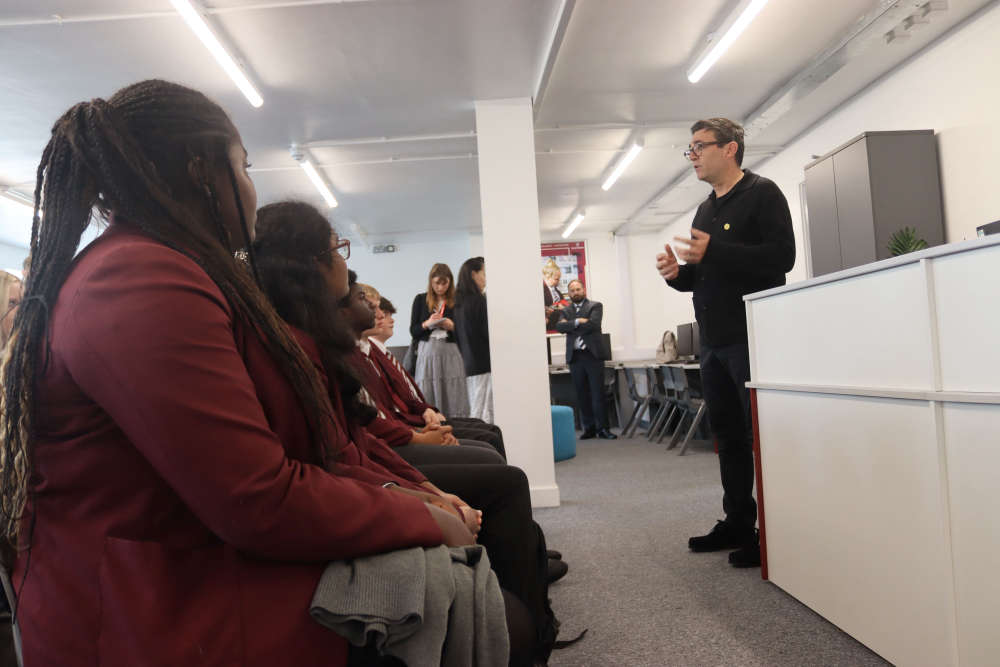
They can also access up-to-date advice on what qualifications and work experience they can get aged 14, 16 and 18 for their chosen career paths.
Martin Davies, head teacher at Rayner Stephens High School, said he believed the new platform would help provide ‘a real, clear route’ for young people, and show them the ‘exciting and aspirational careers that are available across the borough’.
His pupils were among the first to trial the new service, with many of the youngsters reporting it ‘opened up new possibilities they’d never thought of before’.
Denzel Samuel, 16, wants to be a clinical psychologist but wasn’t sure how to get into the industry without a degree. But he said within minutes he’d found a route into the job that also made use of his fluent Spanish ability.
“Most people believe without university there’s just no path for you, or there’s less pay for the work, but this makes it possible to have that same level of professionality,” he told the Local Democracy Reporting Service.
“People go to uni for the experience,” Denzel said. “But university takes too much time. There are more important things to me.”
And 15-year-old Gladys Amore said she thought the website was ‘amazing’ for people like her who weren’t sure what they wanted to do yet.
“My parents have always told me that I’m going to go to college, university and that’s the only way. But this is telling me that there are other ways for me to get what I want,” she said.
“I didn’t even know some of the jobs here existed,” 15-year-old Electina Fernando, who wants to break into finance, added. “And they pay a lot! It shows you what’s out there.”
Even pupils who were set on university, like Elissa Bolton, 15, who wants to study law, said it was great seeing there were ‘loads and loads’ of opportunities in the local area – meaning they wouldn’t have to move to pursue their dream careers.
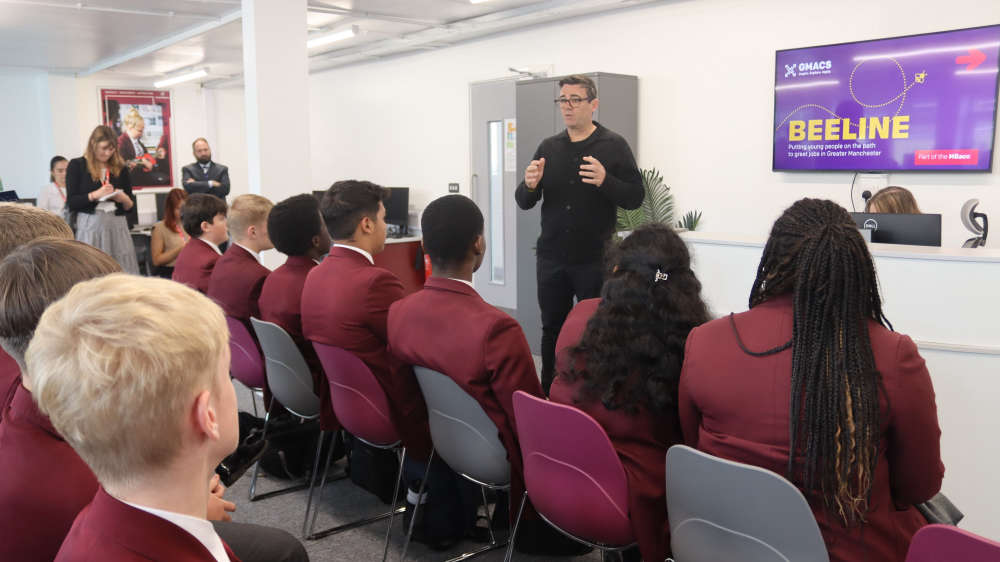
Michael Roughley, an apprentice at construction firm Murphy, said it would have ‘changed his life’ if he’d had Beeline at school. The 34-year-old switched careers after winding up in retail for more than a decade.
The CAD technician said: “I left school, didn’t know what I wanted to do. Back then it was ‘be a plumber, a plasterer, a bricklayer, or go to uni’, those were the only options.
“It’s a very late career change and I wouldn’t change my choices. But if this had been around when I was at school, maybe I would have heard about being a CAD technician sooner.”
The MBacc, which is being rolled out over the next two years, will allow pupils in year 9 to select GCSE tailored to one of the seven industry ‘pathways’, alongside English, Maths and Sciences. Curriculums are to be influenced by what businesses are looking for, with the idea that pupils come out with exactly the skills their future employers want.
Mr Burnham said he’s still working to make sure ‘everyone understands what we’re trying to do’ within government and would be petitioning parliamentary members at the Labour conference in Liverpool. He admitted there was ‘still some uncertainty’, with the government recently having put a one year hold on the defunding of BTEC qualifications.
“What I want to do is show to them that the whole MBACC has a momentum of its own, not because of us or policymakers but because of businesses and schools taking ownership of it,” he said. “What we’re creating here is a template for how technical education could work all over the country. People probably won’t believe me, but I’m more excited about this than yellow buses.”


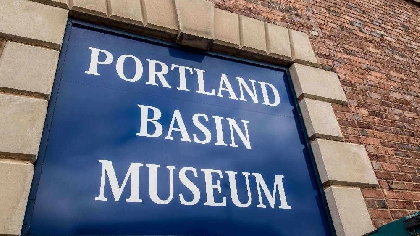 Victory! Exhibition marks 80 years since WWII
Victory! Exhibition marks 80 years since WWII
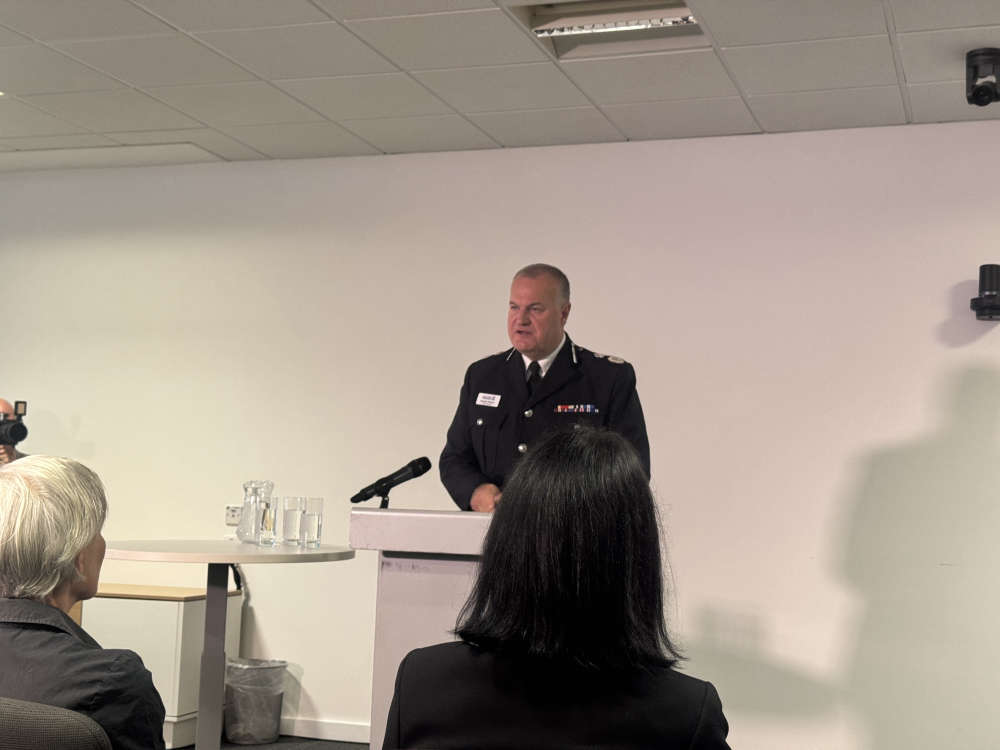 GMP chief ‘sleeps well’ after grooming report
GMP chief ‘sleeps well’ after grooming report
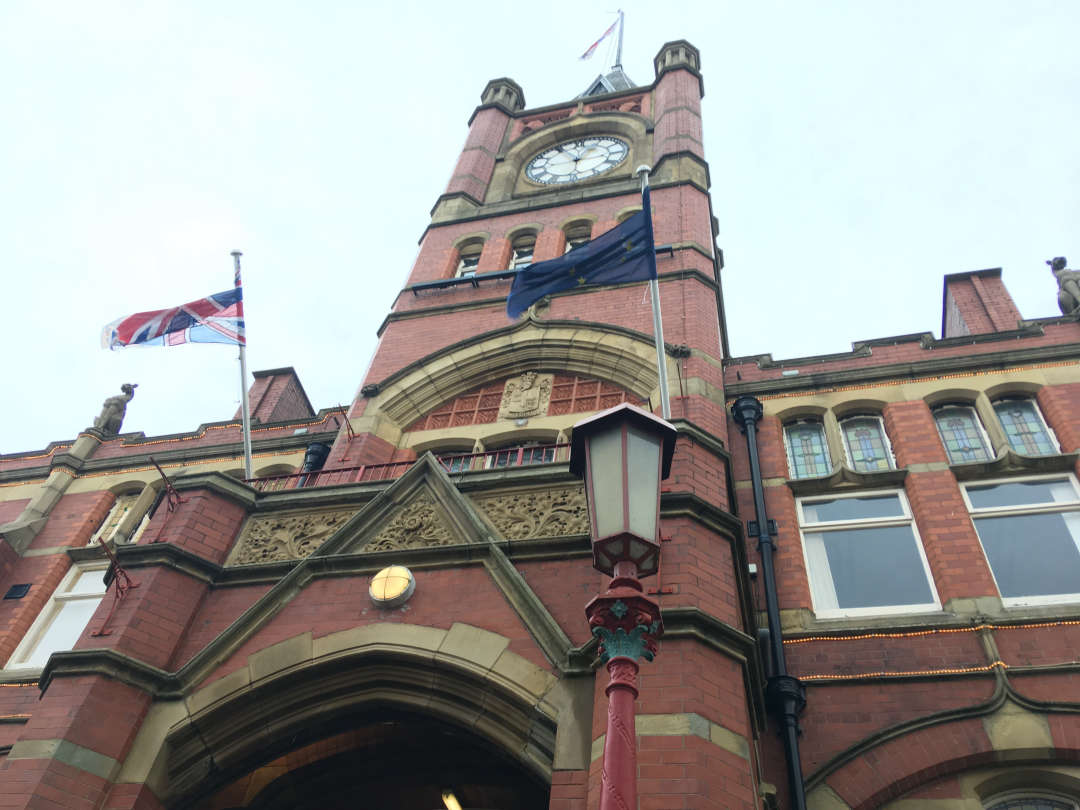 SEND services in Tameside slammed in latest inspection
SEND services in Tameside slammed in latest inspection
 Residents to receive out-of-hours Registrar Service support
Residents to receive out-of-hours Registrar Service support

